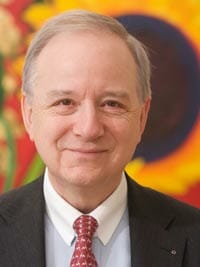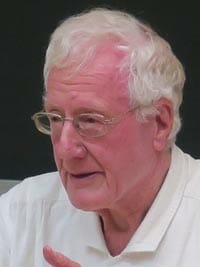The state has clearly demonstrated its inability to issue sound money and the central banks' assurances of their supposed independence ring increasingly hollow and unconvincing.
A guest commentary by Karl Reichmuth | 9.1.2019 | Published in Neue Zürcher Zeitung
A few years before Goethe’s birth, the Scotsman John Law conducted an irresponsible experiment with the monetary system of France. It is quite possible that the well-known Goethe quote “Nach Golde drängt, am Golde hängt doch alles” (“Gold’s all they care about, gold’s wanted everywhere”) originates from the observations made at that time. John Law was in the service of the over-indebted French kings. The real value (or better said, lack thereof) of the shares he issued for the “Mississippi Company”, in order to help pay off the country’s debt, soon became apparent. He issued new shares against debt instruments of the French government and converted these assets into perpetual bonds. This led to the deleveraging of the state at the expense of the population, which was massively invested in the speculative bubble. The subsequent impoverishment of the French middle class was one of the reasons for the French Revolution – which in turn changed the way society thought.
"Experiment"
Today, well-known economists are downplaying the alarming expansion of many central bank balance sheets by claiming that this has “neutralized” part of the increase in government debt since the 2008 financial crisis. The zero interest rate period, probably the first in history, is generally referred to as an experiment. This brings back memories of John Law’s own experiment, which already proved that unbacked and reckless monetary “maneuvers” lead to the impoverishment of broad sections of the population. This, in turn, can result in social upheaval that endanger democracy.
It is thus not inconceivable to expect the same mistakes to produce the same results today.
Upheavals in the monetary system usually emerge from the over-indebtedness of the entity that issues the money. In the past, over-indebtedness was usually caused by high war expenditures or the extravagance of kings. Today, it is an increasing overweighting of social spending in the state budget. In most countries in the West, more than 50 percent of the population already receives more money from the state than they pay for government services. People have become accustomed to the “cradle-to-grave” welfare state. Weaning the public off welfare is difficult – especially when those most used to it are the most important segment of the population for one’s own re-election.
Instinctively, many fellow citizens feel that “something is rotten” in the state-controlled monetary system, namely in the current paper money experiment of the state-controlled central banks. “Can anything be actively done about it?” is the crucial question. In 1971, then U.S. President Richard Nixon dissolved the gold standard. This moved the great economist Friedrich August von Hayek to publish the book “Denationalization of Money” in 1976. The gist of his argument can be summarized as follows: The only way to return to a sound monetary order is the strict separation of money issuance and government. Indeed, the state has already proven its inability to issue sound money and central banks are only superficially committed to their duty to act independently.
Real instead of nominal assets
Hayek’s idea is now getting an additional boost from blockchain technology. With this technology, anyone can become a money issuer. With over 1600 cryptocurrencies now in existence, as well as some proposals for the issuance of private asset backed currencies, nothing stands in the way of Hayek’s vision. “Nothing is as strong as an idea whose time has come.”
People have become accustomed to the "cradle-to-grave" welfare state.
The fact that this idea was first and foremost practically implemented in the the Crypto-Valley, in freedom-loving Switzerland, is no coincidence. What is important, however, the realization that no central bank in the world – not even the (still) healthy Swiss National Bank – exempts wealthy people and pensioners from the responsibility of investing their savings in a “crisis-resistant” manner. This requires that money be well diversified and invested in real rather than nominal assets. This is the only way to preserve savings in the long term.
Photo by Sharon McCutcheon on Unsplash









